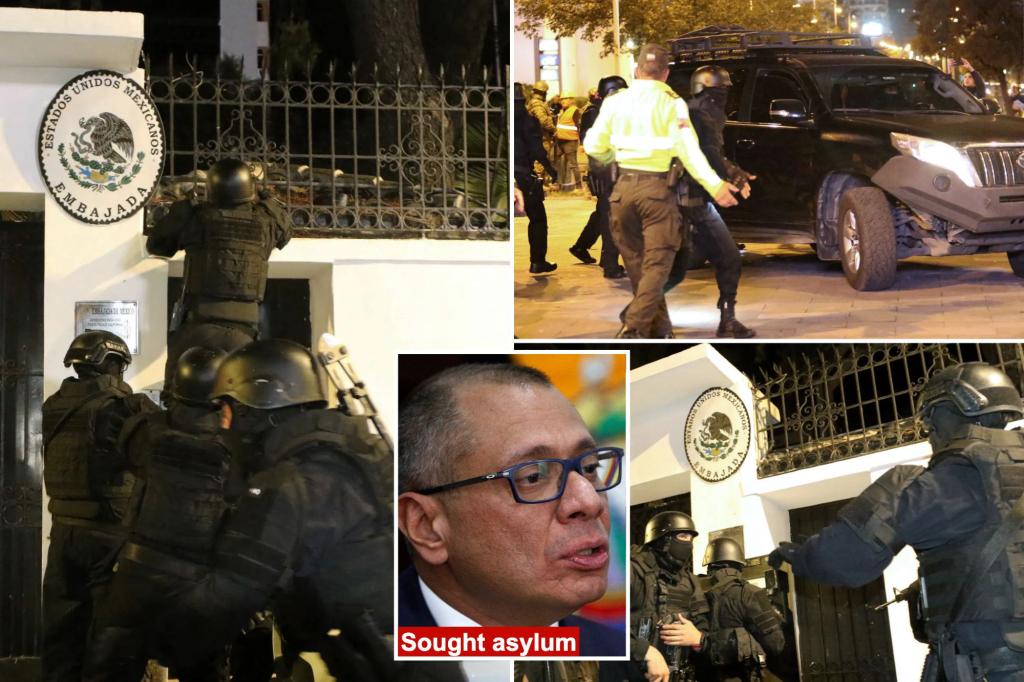Mexico and Ecuador found themselves at the center of a diplomatic crisis when police officers forcibly entered the Mexican embassy in Quito and detained former Ecuadorian Vice President Jorge Glas, who was seeking political asylum. The situation escalated after the Mexican president announced that the country would break diplomatic ties with Ecuador in response to the incident. This move was seen as a response to what was perceived as an authoritarian act by the Ecuadorian government.
Jorge Glas, a prominent figure in Ecuador facing corruption and bribery charges, was seeking asylum at the Mexican embassy, which led to the police forcibly entering the premises to detain him. This action was condemned by Mexico’s president and the secretary of foreign relations, who described it as a violation of international law and diplomatic sovereignty. The incident not only strained the relations between Mexico and Ecuador but also raised concerns about the safety of diplomats and individuals seeking asylum.
The arrest of Glas at the Mexican embassy sparked outrage and concern among Mexican officials, with the head of the Mexican consular section expressing worry about the safety and well-being of the former vice president. The violation of the Vienna Conventions on Consular Relations was highlighted by experts, further complicating the already tense situation between the two countries. The Mexican embassy in Quito remained under heavy police guard following the incident.
Tensions between Mexico and Ecuador had been brewing prior to the embassy incident, as Mexico’s president had made comments that were deemed offensive by Ecuador regarding the country’s last elections. In response, the Ecuadorian government declared the Mexican ambassador persona non grata, further worsening the diplomatic relations between the two nations. The fallout from the embassy breach and subsequent arrest of Glas highlighted the fragility of diplomatic relations and the need for respect for international laws and conventions.
The escalating crisis between Mexico and Ecuador underscored the challenges faced by countries in maintaining diplomatic relations and handling sensitive political issues. The incident also raised questions about the safety and protection of individuals seeking asylum at diplomatic missions, as well as the responsibilities of host countries in upholding the rights and privileges of foreign embassies. The breach of the Mexican embassy in Quito and the detention of Glas were seen as provocative acts that had far-reaching consequences for both countries.
The fallout from the embassy incident served as a reminder of the importance of diplomatic protocols and international laws in maintaining stability and order between nations. The violation of the Vienna Conventions on Consular Relations by Ecuadorian authorities not only strained its relations with Mexico but also highlighted the need for accountability and transparency in handling diplomatic disputes. The diplomatic crisis between Mexico and Ecuador served as a cautionary tale about the risks of political conflicts and the necessity of peaceful resolutions to maintain global peace and cooperation.


